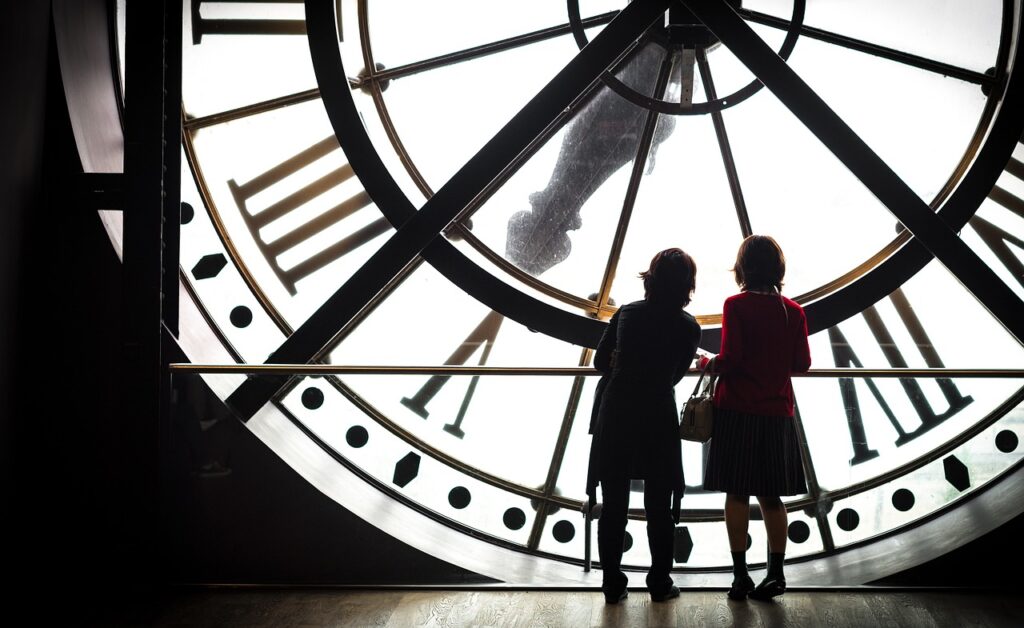Today Ive upgraded my experience , no longer writing in a coffee shop , today Im in a holiday park restaurant . Ok so i’m surrounded by families eating out with their kids , but working in a Primary School , I don’t really hear that noise …I can tune it out .
If you’re a shift worker constantly working nights , you might want to skip this one or you might think Im picking on you . In fact the latest evidence suggests that just one late night each week could be enough to knock your circadian rhythm out of sink!

Im taking for granted that we all know what a Circadian Rhythm is ….poor science ..sorry . The national Institute of general medical science describes it as “ Physical , mental and behavioural changes an organism experiences over a 24 hour period. “Circadian” comes from Latin and means “around the day.”
Every part of your body works to the rhythm , every cell both lights up and goes dark to the rhythm . I was talking to my wife yesterday and describing how we feel , the days after a poor nights sleep or a very late night and early morning wake the next morning , we can all recall feeling ‘rough’ for a couple of days , thats your circadian rhythm telling you off ! This is bad enough if you have a regulated nervous system , but for those of us with dis regulated nervous systems its bad news ,it can make things worse.
Harvard School of Medicine shows us that the rhythm is controlled by multiple genes , they control body temperature , metabolism ,digestion , many fluctuations during the waking period and even hunger! Circadian rhythms control how your body stores long term memories , hormone secretion , body growth and of course body healing. Harvard also shows how the circadian rhythm affects how you apply your emotional coping skills , you might be assertive or rationalise more…… and importantly for us anxiety sufferers it controls predisposition to phycological disorders.

Recent research has shed light on how late nights can disrupt a person’s circadian rhythm and contribute to increased anxiety.
Going to bed late throws off the body’s internal clock, which is synchronized to the natural day-night cycle. This misalignment can lead to a cascade of effects that impact both physical and mental health. You might think Im joking , how can the odd late night add to my anxiety .But imagine your body is a production line in a factory making cars . The whole production line is synchronised from one end to the other , part way through , the robotic arm is slow , the next section is thrown out of timings and by the end of the line cars are coming out with faults and so it is with your body , this area is so underrated in its importance as we will see . Also look at my post on the importance of sleep as this goes hand in hand with this post.
When we stay up late, we expose ourselves to artificial light at times when our bodies expect darkness. This can suppress melatonin production, a hormone crucial for regulating sleep-wake cycles. Disrupted melatonin levels can make it harder to fall asleep and maintain quality sleep throughout the night.
The resulting sleep deprivation and circadian misalignment can increase vulnerability to anxiety in several ways :
- Heightened emotional reactivity: Sleep loss amplifies activity in brain regions associated with emotion, making us more sensitive to negative stimuli .
- Impaired emotion regulation: Lack of sleep reduces our ability to manage stress and regulate emotions effectively .
- Hormonal imbalances: Circadian disruption can alter levels of stress hormones like cortisol, potentially exacerbating anxiety symptoms .
- Cognitive impairment: Poor sleep quality can lead to difficulties with concentration, decision-making, and problem-solving, which may increase worry and anxiety.
The timing of anxiety symptoms often follows circadian patterns. Some people experience peak anxiety in the morning, while others feel most anxious in the evening.
This fluctuation aligns with natural variations in stress hormones like cortisol throughout the day.
Circadian genes may influence anxiety risk. Animal studies have found that mutations in core “clock genes” can alter anxiety-like behaviors. For example, mice lacking certain circadian genes display increased anxiety responses. Light exposure affects both circadian rhythms and anxiety. Exposure to light at night can disrupt circadian cycles and recent research have shown a link with increased anxiety in adolescents when the cycle is disrupted ( lets face it who doesn’t know a teenager who stays up all night on the x box playing with friends , my son does for example).
“ Sleep and circadian rhythms are absolutely fundamental for mental health. New discoveries in this area will transform how we assess, diagnose, monitor, and treat a range of psychiatric disorders, including depression, bipolar disorder, and psychosis.”Professor Daniel Smith, Chair of Psychiatry University of Edinburgh.
The relationship appears bidirectional – anxiety disorders can also disrupt healthy circadian rhythms. People with anxiety often experience irregular sleep patterns and altered daily hormone fluctuations

The timing of anxiety symptoms often follows circadian patterns. Some people experience peak anxiety in the morning, while others feel most anxious in the evening.
This fluctuation aligns with natural variations in stress hormones like cortisol throughout the day.
Circadian Rhythms lets get more complicated.
So , you have the overview , now let’s get a bit more in depth and find out how this all works .
The circadian rhythm is a complex biological system that regulates various physiological processes over a 24-hour cycle. At its core, the mammalian circadian system is controlled by the suprachiasmatic nucleus (SCN) in the hypothalamus ( a small pair of nuclei on top ) , which acts as the master clock 1 3. This central pacemaker synchronises peripheral clocks throughout the body via neural and humoral signals ( this seems to keep a 24 hour clock in the body without external stimulus ..mostly , it does need some help such as light to re set it back to the correct time ).
At the cellular level, circadian rhythms are generated by a transcription-translation feedback loop ( don’t worry too much its just a cellular model of describing how the circadian rhythm works often referred to as TTFL ) ….way of involving core clock genes such as Clock, Bmall 1 , Per, and Cry ( proteins That positively or negatively affect the clock ) ) .These genes regulate the expression of clock-controlled genes, influencing numerous cellular processes including metabolism and hormone secretin
Several hormones exhibit circadian patterns, including cortisol, melatonin, growth hormone, leptin, and ghrelin .Cortisol, for instance, typically peaks in the early morning, promoting wakefulness, while melatonin rises in the evening, facilitating sleep onset.
For individuals with anxiety, circadian rhythm disruptions can exacerbate symptoms.
Studies have shown that mice lacking both Pert and Per2 genes ( core genes thought to be related to mood changing behaviour ) display elevated anxiety-like behavior, suggesting a causal role for these clock components in regulating anxiety . Furthermore, environmental disruptions of circadian rhythms, such as exposure to light at night or shift work, can contribute to the development of anxiety like behaviour. Circadian misalignment can lead to dysregulation of cortisol and melatonin rhythms, potentially intensifying anxiety symptoms . Additionally, sleep disturbances, which are common in anxiety disorders, can further disrupt hormonal rhythms and metabolism, creating a vicious cycle.
Look ……Im not suggesting that your anxiety , depression or other disorders are being caused by a Circadian Rhythm out of sink ….what I am saying is that it’s yet another thing that doesn’t help . To quote from the book “ Inside the Human body “ about how complex the body is …….
“The human body is a marvel of intricacy, a symphony of systems working in perfect harmony. From the microscopic dance of cells to the intricate network of nerves, every part plays a crucial role in sustaining life. It’s a testament to nature’s ingenuity, where complexity breeds resilience, and each heartbeat echoes the rhythm of our existence”.
In short we are complex , very complex and rely on the interactions of multiple parts , systems and even foreign bodies. The answer to our problems may be equally complex ( I hope not ) and if we can do anything to bring our body back to a normal regulation it will surly help whatever the answer turns out to be ……..and that answer might be different for us all.

What can we do as anxiety sufferers to help our Circadian Rhythms?
- Light therapy: Exposure to bright light, particularly in the morning, can help reset the circadian rhythm and improve mood[1][4]. This is especially beneficial for those with delayed sleep phase disorder or seasonal affective disorder. ( I knew someone who used a light box and loved it ).
- Sleep hygiene: Maintaining a consistent sleep schedule, even on weekends, helps regulate the body’s internal clock[1][4]. Create a relaxing bedtime routine and avoid screens before sleep to minimize blue light exposure. ( drop those late nights out with the girls ….or boys!)
- Chronotherapy: Gradually adjusting sleep and wake times can help realign the circadian rhythm[2]. This may involve slowly shifting bedtime earlier or later, depending on the individual’s specific circadian disruption.
- Physical activity: Regular exercise, preferably during daylight hours, can improve sleep quality and help regulate circadian rhythms[4]. However, avoid intense exercise close to bedtime.
- Meal timing: Eating at consistent times throughout the day supports circadian rhythm regulation[4]. Avoid large meals close to bedtime and limit caffeine intake, especially in the afternoon and evening.
- Natural light exposure: Spending time outdoors during daylight hours, particularly in the morning, can help synchronise the circadian rhythm with the natural light-dark cycle[4].
- Cognitive Behavioural Therapy for Insomnia (CBT-I): This therapy can address both sleep issues and anxiety symptoms, potentially improving overall mental health[1][2].
- Melatonin supplementation: Under medical supervision, melatonin can help regulate sleep-wake cycles, particularly for those with delayed sleep phase disorder[2].
- Stress reduction techniques: Practices such as mindfulness meditation, deep breathing exercises, or yoga can help manage anxiety and promote better sleep[1].
- Environmental adjustments: Create a sleep-conducive environment by keeping the bedroom dark, quiet, and cool. Use blackout curtains or a sleep mask if necessary[4]. ( references to these can be found below).
By implementing these strategies, anxiety sufferers can work towards better alignment of their circadian rhythms, potentially reducing the severity of their symptoms and improving overall quality of life. It’s important to consult with a healthcare professional for personalised advice and treatment options, we can do some things for ourselves of course in a lifestyle way to help re regulate our nervous systems .
“Our circadian rhythm is the silent conductor of life’s symphony, orchestrating the delicate balance between our biology and the world around us. Ignore its gentle guidance at your peril, for in disrupting this ancient timekeeper, we risk not just our sleep, but our very health and vitality.”
Sources
[1] Explained: Sleep, circadian rhythms and mental health | Wellcome https://wellcome.org/news/explain-sleep-circadian-rhythms-mental-health
[2] Circadian rhythm disruption and mental health – Nature https://www.nature.com/articles/s41398-020-0694-0
[3] Circadian rhythm disorder and anxiety as mental health … – NCBI https://www.ncbi.nlm.nih.gov/pmc/articles/PMC8730477/
[4] Sleep and circadian rhythm problems linked with poor mental health https://theconversation.com/sleep-and-circadian-rhythm-problems-linked-with-poor-mental-health-new-research-223895
[5] Circadian symptom fluctuations in people with anxiety disorders https://www.sciencedirect.com/science/article/pii/0165032786900728





I do not even know how I ended up here but I thought this post was great I do not know who you are but certainly youre going to a famous blogger if you are not already Cheers
I loved as much as you will receive carried out right here The sketch is tasteful your authored subject matter stylish nonetheless you command get got an edginess over that you wish be delivering the following unwell unquestionably come further formerly again as exactly the same nearly very often inside case you shield this hike
Wow wonderful blog layout How long have you been blogging for you make blogging look easy The overall look of your site is great as well as the content
Real Estate I very delighted to find this internet site on bing, just what I was searching for as well saved to fav
Mygreat learning I very delighted to find this internet site on bing, just what I was searching for as well saved to fav
Simplywall I very delighted to find this internet site on bing, just what I was searching for as well saved to fav
I have been surfing online more than 3 hours today yet I never found any interesting article like yours It is pretty worth enough for me In my opinion if all web owners and bloggers made good content as you did the web will be much more useful than ever before
Simply desire to say your article is as surprising The clearness in your post is simply excellent and i could assume you are an expert on this subject Fine with your permission let me to grab your feed to keep up to date with forthcoming post Thanks a million and please carry on the gratifying work
Thanks I have just been looking for information about this subject for a long time and yours is the best Ive discovered till now However what in regards to the bottom line Are you certain in regards to the supply
allegheny county real estate This is really interesting, You’re a very skilled blogger. I’ve joined your feed and look forward to seeking more of your magnificent post. Also, I’ve shared your site in my social networks!
I do believe all the ideas youve presented for your post They are really convincing and will certainly work Nonetheless the posts are too short for novices May just you please lengthen them a little from subsequent time Thanks for the post
Every time I visit your website, I’m greeted with thought-provoking content and impeccable writing. You truly have a gift for articulating complex ideas in a clear and engaging manner.
Simply wish to say your article is as amazing The clearness in your post is just nice and i could assume youre an expert on this subject Well with your permission let me to grab your feed to keep updated with forthcoming post Thanks a million and please carry on the gratifying work
Simply Sseven I appreciate you sharing this blog post. Thanks Again. Cool.
Thanks I have recently been looking for info about this subject for a while and yours is the greatest I have discovered so far However what in regards to the bottom line Are you certain in regards to the supply
What i do not understood is in truth how you are not actually a lot more smartlyliked than you may be now You are very intelligent You realize therefore significantly in the case of this topic produced me individually imagine it from numerous numerous angles Its like men and women dont seem to be fascinated until it is one thing to do with Woman gaga Your own stuffs nice All the time care for it up
Hi i think that i saw you visited my web site thus i came to Return the favore Im attempting to find things to enhance my siteI suppose its ok to use a few of your ideas
Sky Scarlet I just like the helpful information you provide in your articles
dodb buzz I just like the helpful information you provide in your articles
Insanont naturally like your web site however you need to take a look at the spelling on several of your posts. A number of them are rife with spelling problems and I find it very bothersome to tell the truth on the other hand I will surely come again again.
Blue Techker I do not even understand how I ended up here, but I assumed this publish used to be great
Hey very cool web site!! Man .. Excellent .. Amazing .. I’ll bookmark your site and take the feeds also…I’m happy to find numerous useful info here in the post, we need work out more strategies in this regard, thanks for sharing. . . . . .
Newtoki There is definately a lot to find out about this subject. I like all the points you made